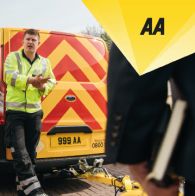Hot on the heels of the latest Operational Fleet Report 2019/20, the fourth iteration of research jointly commissioned by the AA and Rivus Fleet Solutions through research consultancy Populus, director of Fleet & SME at the AA, Stuart Thomas argues business holds the key to a clean air future - but only if government clears the way
Mainstream electric and alternatively fuelled vehicle adoption will only be achieved if businesses are given clear and consistent policies coupled with financial support to invest in new technologies, rather than relying on consumers to take the first step. Our latest research suggests, although diesel sales may be in decline, the fuel continues to remain a primary buying choice for operational fleets in the absence of clarity on future policy. If we want to see a shift to alternative fuels, then business needs to have confidence in a clear sense of national and local policy direction.
Indeed, a lack of consistency in local policy interventions, such as the London ULEZ boundary expansion in 2021, the proposed Bristol City Council diesel ban and delays to Clean Air Zones in Birmingham and Leeds, has pushed some operational fleets to replace diesel vehicles like-for-like rather than investing in new technologies. The majority (89%) of those surveyed for our Report continue to use diesel in their fleets, with many citing the fact it remains cheaper than greener alternatives and, with Euro 6 compliant engines, diesel still meets the requirements of most clean air zone legislation announced to date.
In last year's Report, a third (36%) of fleet managers expected to see electric vehicles (EV) in their fleet within the next five years. This has now increased to more than half (57%), largely because of wider vehicle availability. A third (33%) of fleet decision-makers think pure EVs will be the most dominant fuel type on fleet in ten years' time. However, three quarters (75%) still expect to be using diesel in their fleets in five years' time, suggesting, while change is on the way, it won't necessarily be dramatic.
Education and clarity are key if businesses and fleet decision-makers are to make effective judgements around investing in a clean air future. In the absence of consistent interpretation of the Government's CAZ framework by local authorities, and a confirmed road map towards zero emissions, fleet operators and businesses are sticking to what they know, adding new diesels to their fleets and paying fines for non-compliance rather than investing in new EVs.
Looking pragmatically, a quarter (23%) of those surveyed had recently bought new Euro 6 diesels, while the introduction of clean air zones has prompted one in four to pay the fines (23%) and a similar proportion (25%) to move older, non-compliant vehicles to other parts of the country.
We haven't seen the big shift in EV adoption we expected in the past 12 months, and individual local clean air interventions are not the way to drive national change, but the decision to prolong diesel into another purchase cycle appears to be a conscious one based on whole life cost calculations. While many of those we interviewed don't yet have the confidence to make big steps into an EV future, particularly commercial fleets where the vehicle choice is much more limited, it is promising to see how many of those surveyed expect to have EVs on their fleet over the coming decade.
The question is, will this be quick enough to meet ambitious zero emission targets, which, given the current political discussion, could be as soon as 2030?
The Operational Fleet Report 2019/20, jointly commissioned by the AA and Rivus Fleet Solutions through research consultancy Populus, can be downloaded from: https://www.theaa.com/about-us/newsroom/operational-fleet-insight-report...






